
MAGAZINE The Price of Friendship, page 6 Optimism: Virtue or Vice? page 8 Recipe Feature: Professor Mike Brown, page 18 08 Vol 3 No 1 coming of age issue The Crisis of Fatherhood, page 22
metanoia
CONTRIBUTORS
EDITOR-IN-CHIEF & CONTENT DIRECTOR
Samuel Schirra
CREATIVE & ART DIRECTOR
Maghee Fleischer
DESIGNERS
Anna Enyeart
Amelie Garnand
Karla Martinez
EDITORS
Amelia Coleman
Helen Davis
Madeline Davis
Anna Enyeart
Karla Martinez
ADVISORY BOARD
Kathleen Sullivan, PhD
Daniel McInerny, PhD
Eric Jenislawski, PhD
Niall O’Donnell
Daniel Spiotta
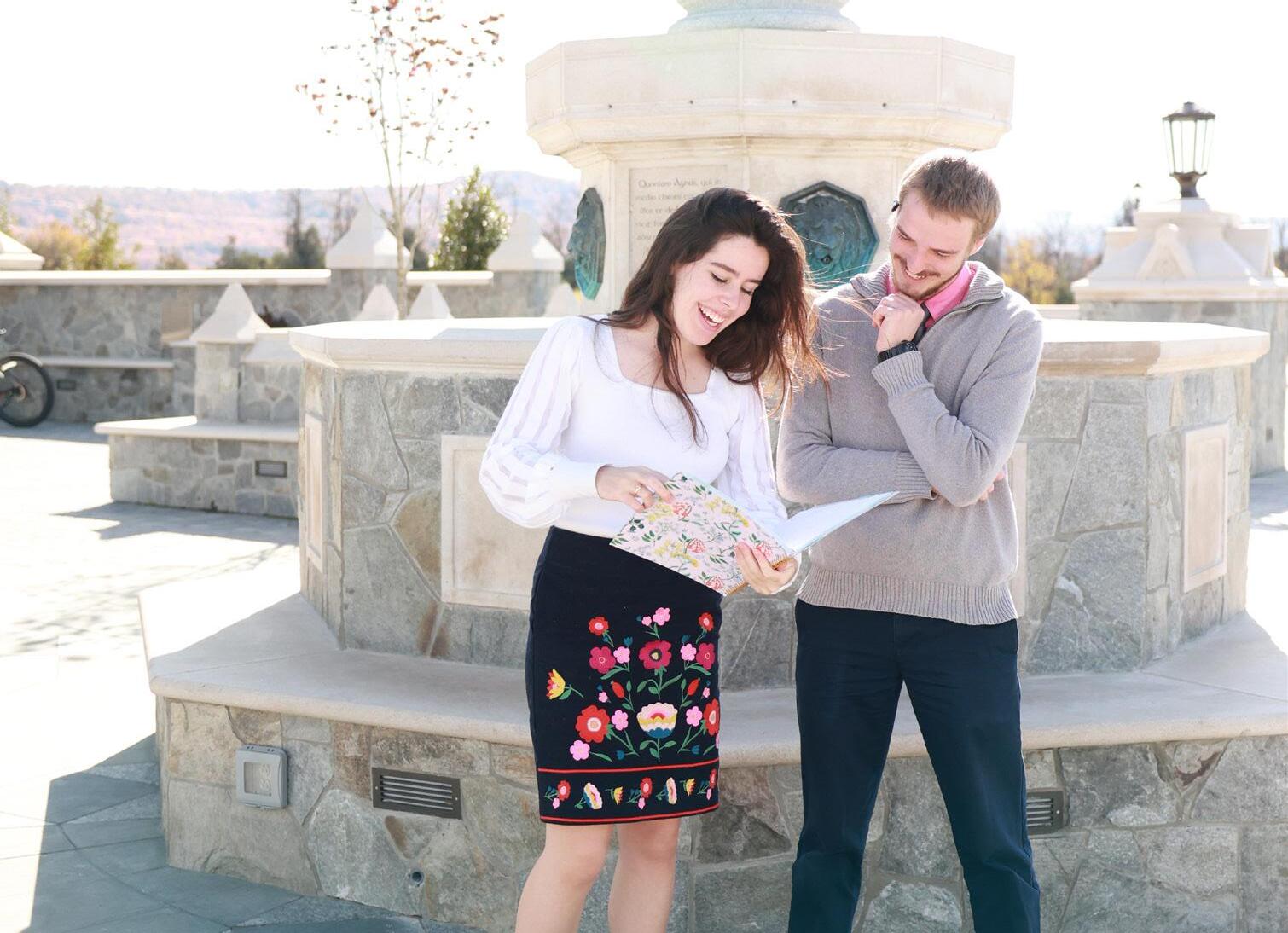
LETTER FROM THE EDITOR
Dear Reader,
Even after the graduation of its founders, Metanoia Magazine is still going strong. The title of this issue—“Coming of Age”—indeed applies to Metanoia’s development over the years, especially as this journal enters its sixth semester in January.
MISSION STATEMENT: 9
Metanoia is a student magazine that showcases the height of Christendom College excellence in the areas of journalism, art, and design. It is meant to inspire thoughtful conversation among the student body and the broader Christendom community. Metanoia articles address issues concerning society, our immediate surroundings, and ourselves. Metanoia allows promising students the opportunity to develop their talents so that they can use contemporary media to “Restore All Things in Christ.”
Additionally, “Coming of Age” recalls a poignant verse from St. Paul’s first Letter to the Corinthians: “When I was a child, I used to talk as a child, think as a child, reason as a child; when I became a man, I put aside childish things.” Thus, “Coming of Age” mainly refers to the multifaceted maturation we must undergo. After all, only through learning to talk, think, and reason as adults may we fulfill God’s plan for our lives.
The articles in this issue deal with the modes of achieving our final end, from discerning our vocations to even reflecting on how we eat (and what to eat; see inside for a couple recipes!). As we wrestle with the perennial problems described in the following pages, may we rest assured that we are not alone in the struggle.
The Lord bless you and keep you; the Lord let His Face shine upon you and be gracious to you; the Lord look upon you kindly and give you peace.
In Christ, Samuel Schirra Editor-in-Chief
Maghee Fleischer, creative director and Samuel Schirra, editor-in-chief
— 2 —
Julie Wells Photography
SELF becoming childlike amidst our call to maturity bittersweet SURROUNDINGS why boundaries matter music unfit for liturgy the meaning in objects: a catholic response to minimalism SOCIETY dirtbag idols: a reflection on sports today trans-parency redemptive loneliness 4 8 16 24 22 IN SIDE THISISSUE 20 6 12 SELF what if I make the wrong choice? the price of friendship SURROUNDINGS optimism: virtue or vice? the philosophy of cooking recipe feature SOCIETY verso l'alto the crisis of fatherhood 4 6 8 22 20 IN SIDE THISISSUE 14 18 — 3 — Metanoia Magazine

WHAT IF I MAKE THE WRONG CHOICE?
by MADELEINE CLARK '26
Vocation—we all have a vague idea of what this word means. The Catechism of the Catholic Church defines vocation as something pursued “through the exchange with others, mutual service, and dialogue with [our] brethren” (CCC 1879). Vocation is the special path to holiness, the way which we choose to serve God in this world, and we want to get it right. Therefore, this choice is a constant thing we wonder and worry about.
Maybe you already know what God has planned for you. For the rest of us, our prayers and interior dialogues are most likely a string of muddled, anxious pleas:
“Lord, please tell me what you want me to do.”
“Jesus, whatever you want for me, I will do it.”
“Lord, what if I make the wrong choice?”
— 4 — Self
Choosing the “correct” vocation seems to be a question with which many young Catholics struggle. Perhaps we are called to dedicate ourselves to God through marriage and family life. Maybe we are instead called to the consecrated life, or even to the single life. If only we immediately knew which to choose!
Because of the various options and their consequences, we feel we must be careful in choosing the right vocation. After all, what if one of you men married when you were supposed to be a priest? Likewise, what if some of us women joined a religious order, but discovered we were not meant to stay there? For many of us, discerning vocation feels like driving on an interstate while anxiously searching for the exit. If we fail to pay attention, if we blink for even a second, we may miss that exit and arrive at the wrong destination.

namely, the praise of God our Lord and the salvation of our soul.”1 Therefore, so long as we are going towards God, so long as we are racing towards Our Lord, every path will be both beautiful and unique, offering grace-filled opportunities. In other words, living out our individual vocations does not begin later in life or start at a random point in time; it is happening now, as we offer up our “prayers, works, joys, and sufferings” of each and every day.

To dispel this encircling pressure, we must remember that no vocation is the destination. Rather, Our Lord is our ultimate end. As St. Ignatius of Loyola astutely points out, “[T]he eye of our intention ought to be simple, only looking at what we are created for,
The road to God is a journey lived throughout life, with many paths that split off into different directions, but where all good paths ultimately lead to Him. As explained above, we are each already on one of these paths in every action we perform, whether in studying, assisting family, or consoling someone in need. Whichever vocation we ultimately choose, God will give us the graces necessary to sanctify it. Thus, to avoid anxiety about the future, we must remember that God is calling us right now, this day, this hour, this minute, this moment. Let us not wait to start walking towards Him.



— 5 — Metanoia Magazine

One of the greatest human desires is to be known. This desire often drives us to join a community and foster friendships. Most of us are willing to be friendly, yet establishing more than a passing camaraderie is difficult.
Among the chaos of college’s combination of clubs, activities, and life away from home, what is often most cherished is the time spent building friendships, which we hope will be lasting and will become the friendships of virtue which Aristotle describes in his Nicomachean Ethics. At the heart of these deep connections lies a seemingly simple, yet profoundly difficult, element: vulnerability. As Brene Brown, who gained her PhD in social work, wrote, “Vulnerability is the core, the heart, the center, of meaningful human experiences.” True friendship goes beyond sharing factual information about yourself—it is showing up as you are and facing the risk of rejection.
One of the greatest human desires is to be known.
Embracing vulnerability is the key to authentic and enduring friendships. If you already have people you would like to build those bonds with but are not sure how to go deeper, responding honestly to questions about your emotional state or the way your day is going is a good place to start. You could talk about a problem, something that is bothering you or which recently taught you a lesson. Sharing part of yourself does not guarantee you will be received well, but without this risk there is no chance of cultivating

" — 6 — Self
deeper relationships.
That being said, vulnerability does not mean oversharing. Connecting does not require exposing every facet of your life to everyone you encounter. Being vulnerable means letting your guard down, showing your true self with all your imperfections and genuine emotions. It means admitting when you feel lost, asking for help when you are overwhelmed, and seeking comfort when you are hurting. Although this can be intimidating, the alternative is keeping up a façade, preventing all from seeing your flaws to keep yourself safe from rejection or judgment. Nevertheless, concealing how you really feel leaves you feeling isolated and misunderstood. In attempting to keep your flaws hidden, you keep yourself from being seen.
At their best, friendships involve personal growth, support, and creating lifelong connections. The friendships that last are supportive ones, ones that embrace you as you are and allow you to put down your guard while encouraging you to grow. Being vulnerable may seem daunting at first, but pulling down the façade and taking down unnecessary walls will allow your personality to shine through. Embracing vulnerability lets you build friendships based on trust, understanding, and genuine care, for it centers relationships around a love for who you are and not who you are pretending to be.
 by KARLA MARTINEZ '24
by KARLA MARTINEZ '24

Embracing vulnerability is the key to authentic & enduring friendships. "

— 7 — Metanoia Magazine

Virtue or Vice? OPTIMISM:
by DANNY O'HARA '24


— 8 — Surroundings
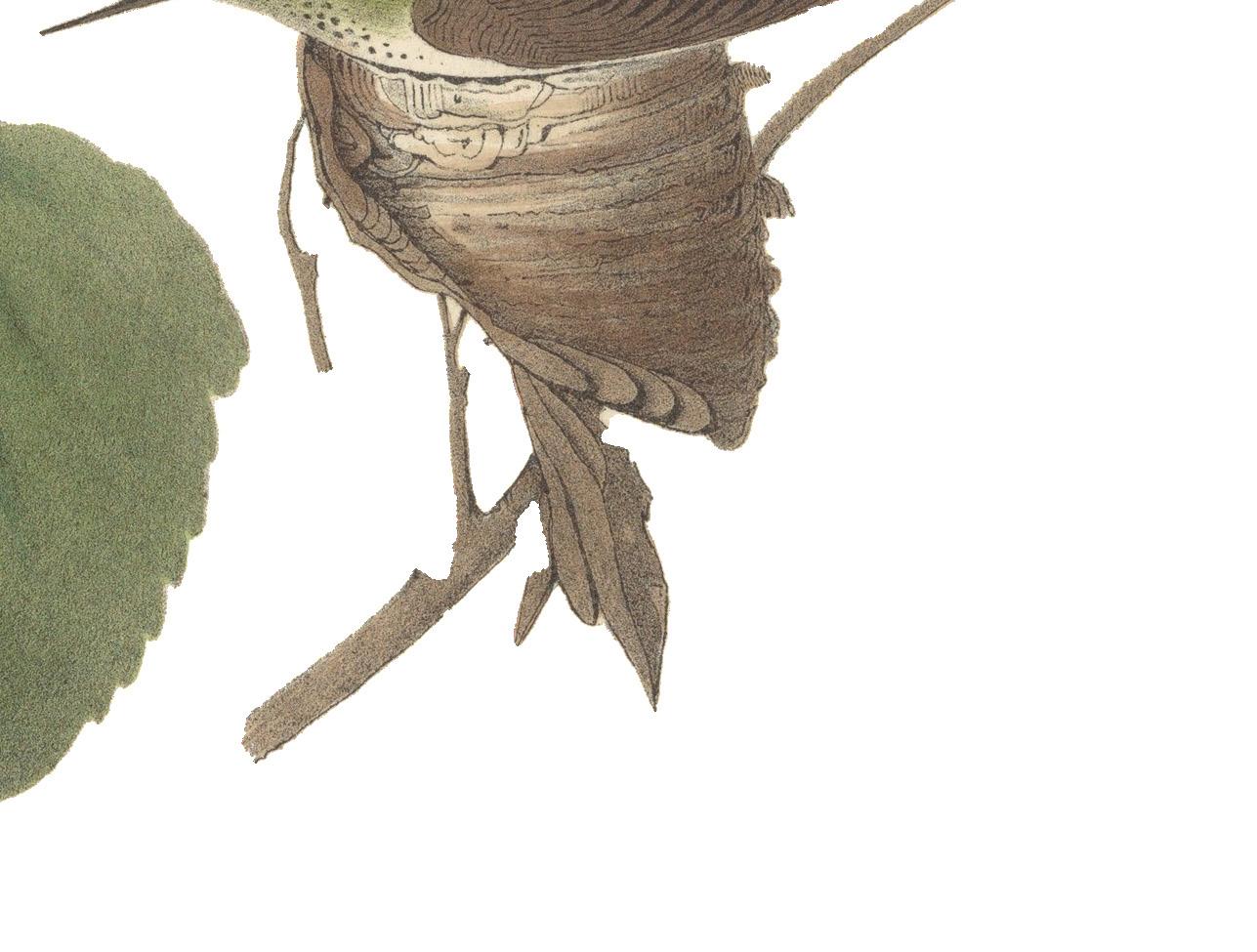

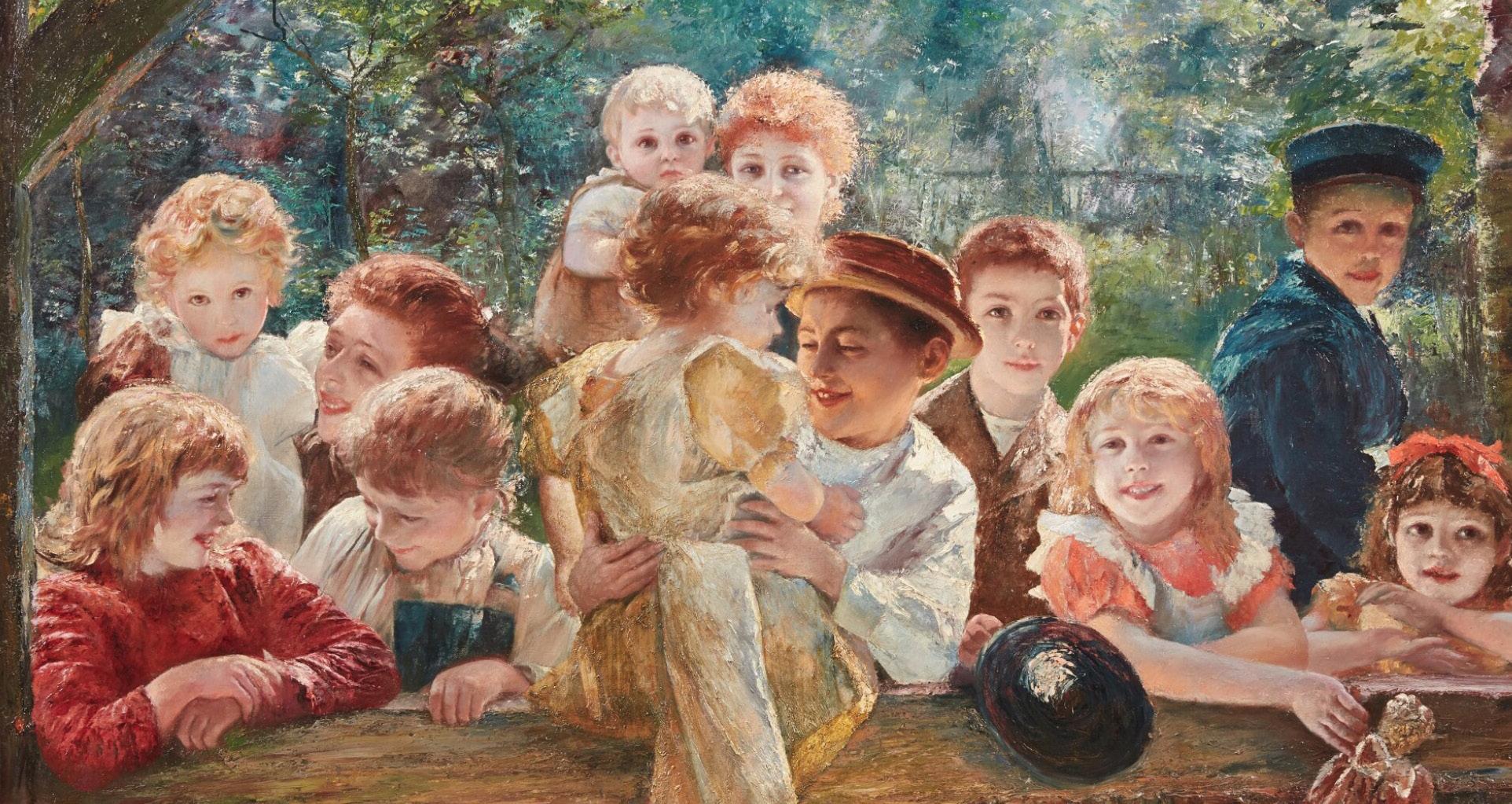
conform to reality, because it sees the universe as metaphysically neutral. In other words, realism, in expecting good and bad results to be fundamentally distinct, has no conception that every event is in some way a good result. As Catholics, on the other hand, we believe that all of reality is fundamentally good and that God brings about good in the world—even through “negative outcomes”—and thus the human experience is incredibly good. The realist cannot see this; only the optimist can, for the optimist is attuned to seeing “the brighter side of things,” and thinks “that even good things can come from adverse events.”3 Since the Catholic worldview includes belief in the goodness of Cre ation and in Divine Providence, all Catholics must practice a kind of “supernatural optimism.”
to reconcile the world to Himself. How will we convert the world to Christ if we do not have an optimistic hopefulness in the power and goodness of God?

Note that optimism should not be conflated with the theological virtues of faith or hope; nevertheless, the theological virtues must inform our worldview, including our fundamental attitude towards reality. Hence, optimism is an attitude that should flow from our faith and hope.
Especially important is our belief that Divine Prov idence works through human instruments. In aspir ing “to restore all things in Christ,” we take ourselves to be the hands of Providence, effecting God’s desire

It seems, then, that optimism is a virtue, but to conclude here might leave one wondering why it seems so plausible to consider it a vice. Here we must distinguish optimism from idealism. While both are attitudes that expect positive results, idealism expects unrealistically favorable outcomes from the fleetingness of this world, whereas optimism sees beyond the here and now. Even in the midst of great trials, the optimist knows that God is always bringing about “positive results” of a much deeper, mysterious sort. Therefore, the
— 9 — Metanoia Magazine
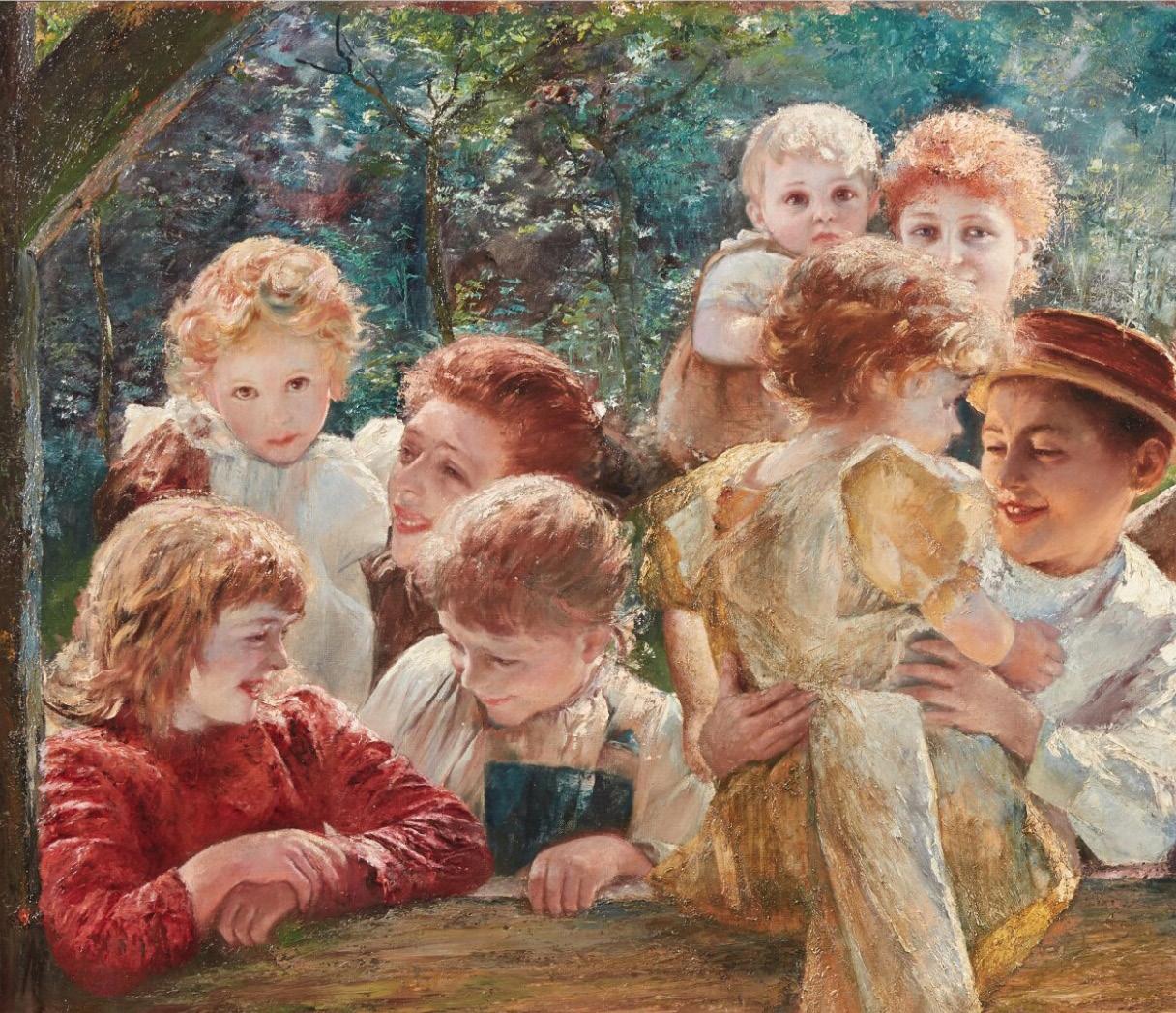

idealist suffers from a naïve worldview and disappointed expectations, but the optimist lives in the truth. Since both attitudes expect good things to happen, one way or another, idealism can easily masquerade as optimism, leading to the opinion that
There is a difference, however, between wishful thinking and seeing the good in everything; hence, we must not “confuse optimism with the toxic positivity of modern-day society.”4 It is clear that optimism is a virtuous attitude and a necessary element of the Christian life. In the embers of today’s world, the pessimist can only laugh and say, “I told you so,” and the realist can only flee into a Benedict Option. Only the optimist can charge out of the rubble, fearlessly living the Gospel, with confidence that even this world can still be saved.

Only the optimist can charge out of the rubble, fearlessly living the Gospel, with confidence that even this world can still be saved." "
OPTIMISM
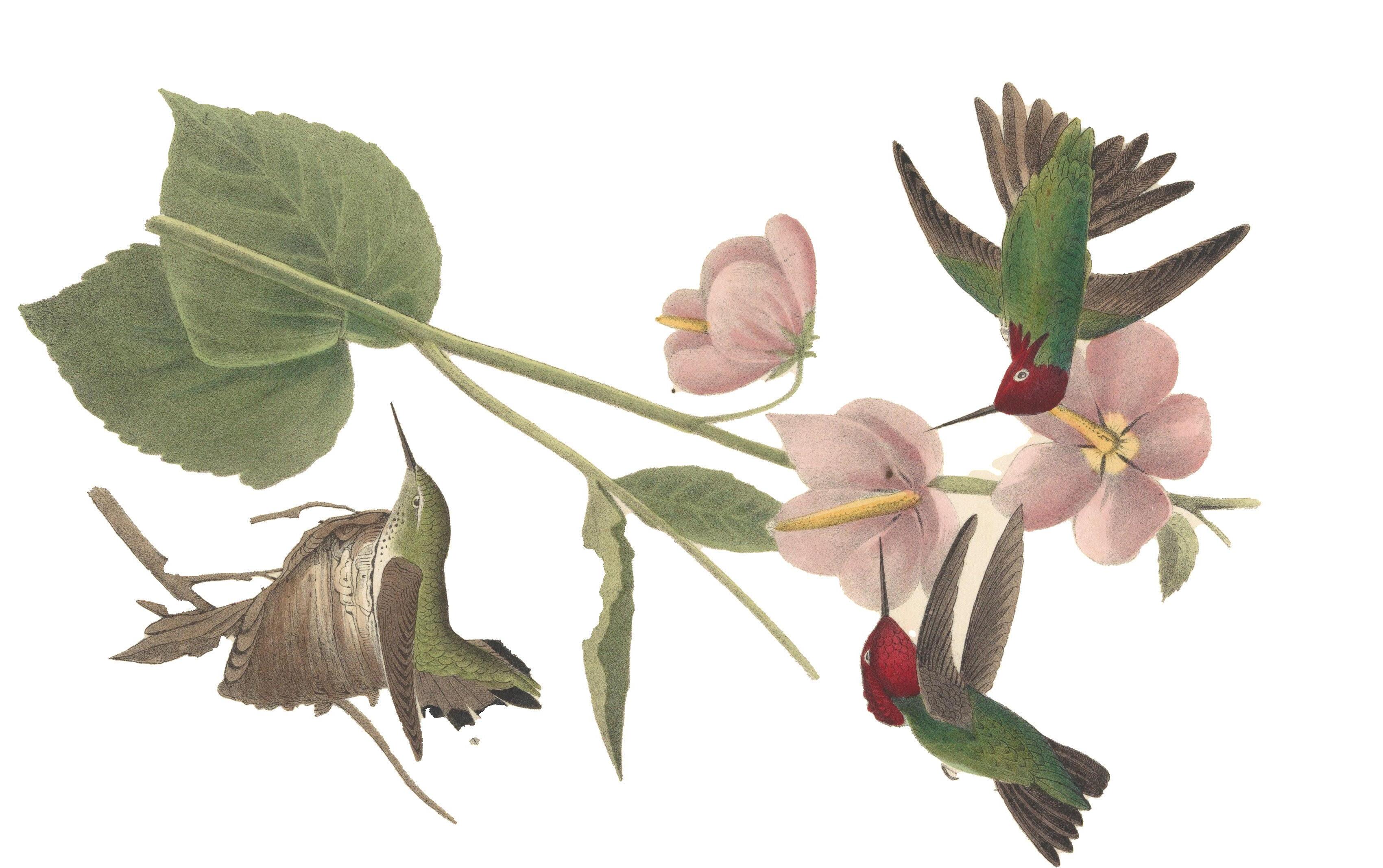
— 10 — Surroundings

The Serenity Prayer
O God, grant me the serenity to accept the things I cannot change, the courage to change the things I can, and the wisdom to know the difference. Living one day at a time, enjoying one moment at a time. Accepting hardships as the pathway to peace. Taking, as He did, the sinful world as it is, not as I would have it. Trusting that He will make all things right if I surrender to His will; that I may be reasonably happy in this life, and supremely happy with Him forever. Amen.
— 11 — Metanoia Magazine

Consider the ravens:theyneithersow nor & yet God feeds them.
Ofhowmuchmore
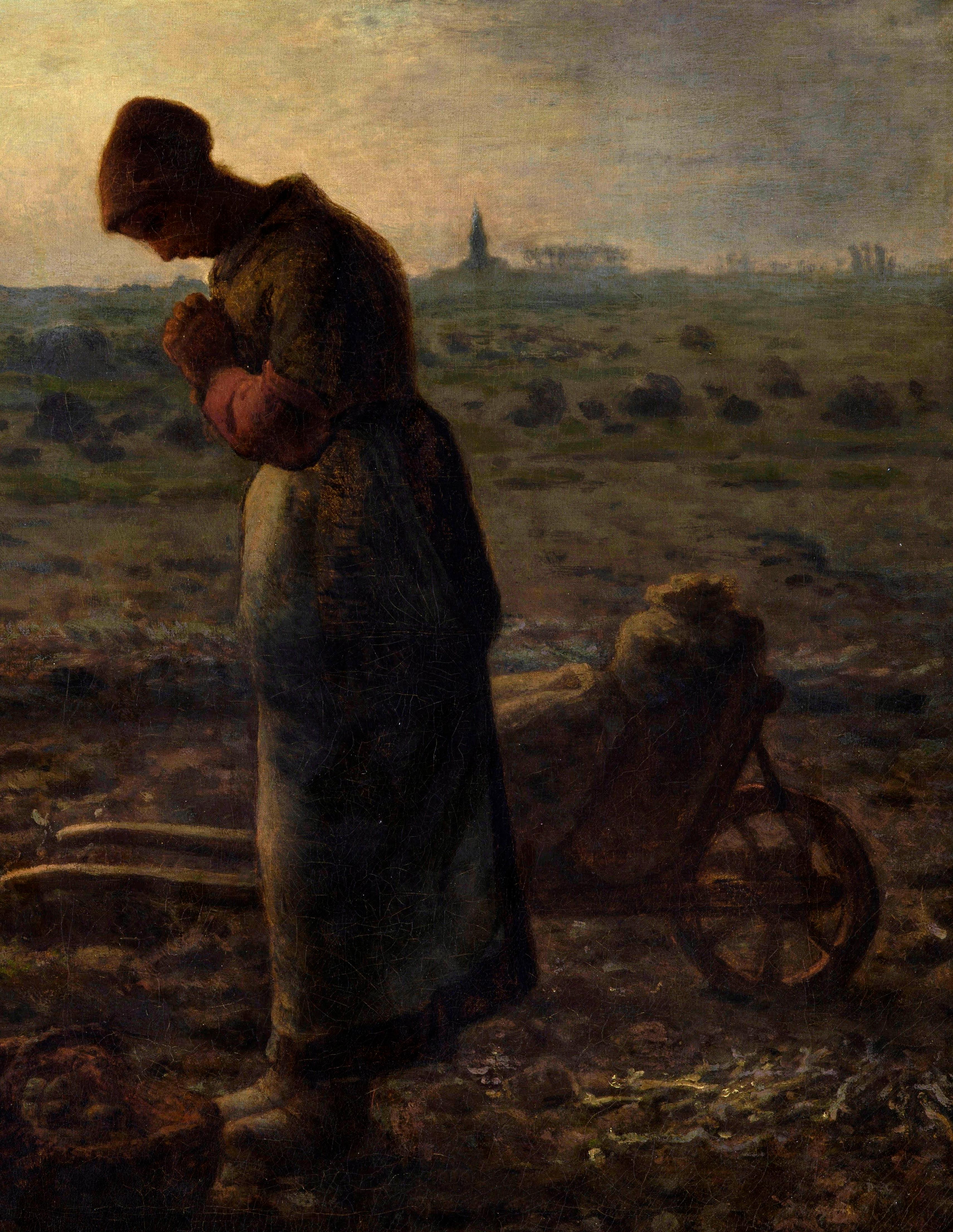
reap, they have neitherstorehouse nor barn, value are you
Luke 12 : 24
— 13 — Metanoia Magazine
thanthebirds!
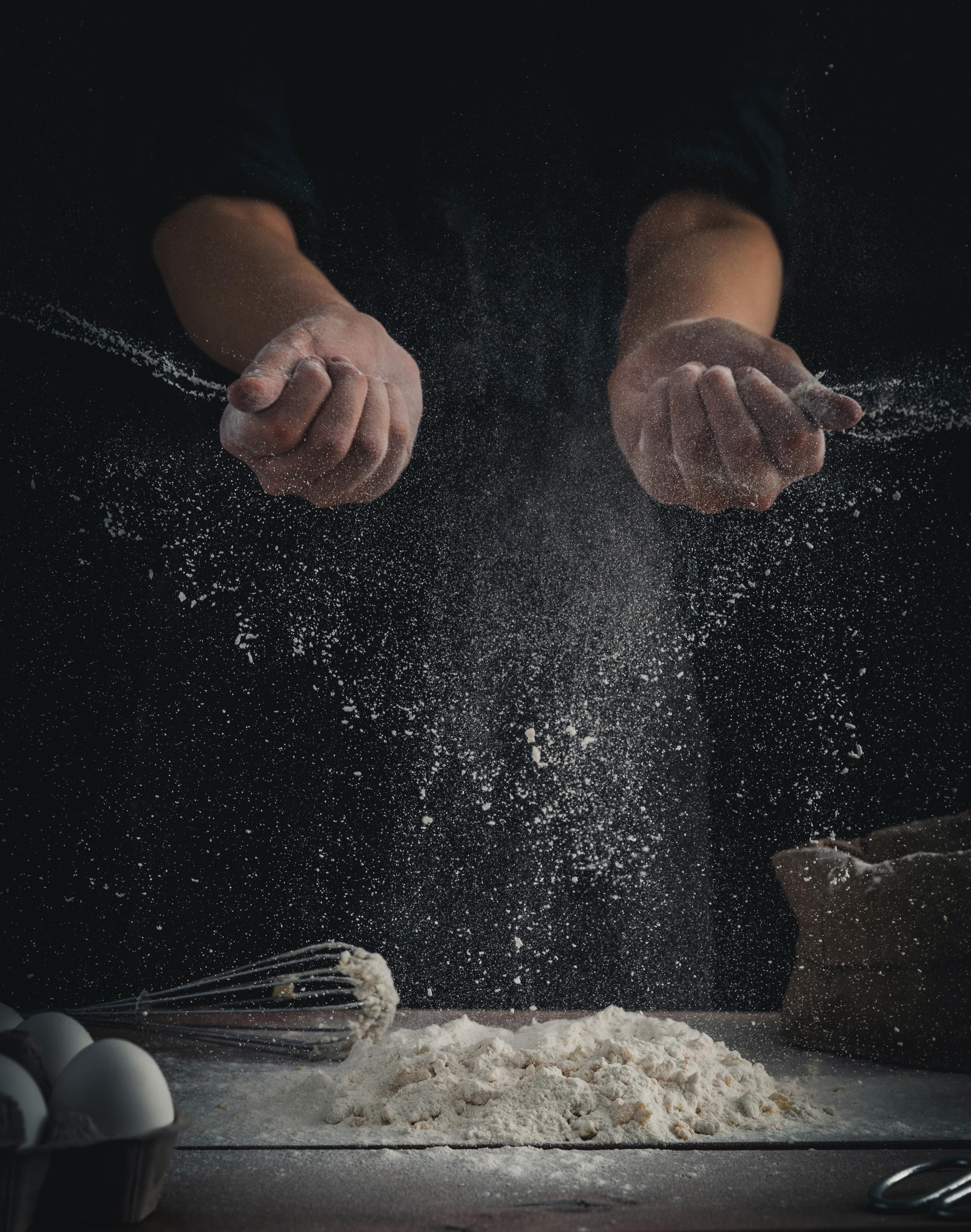
The Philosophy of COOKING
by ERIN HATLEY '24
— 14 — Surroundings
What is it about cooking that interests us so much? So many people watch videos of food prep as a way to de-stress, but those same people claim to hate cooking. On the other side, those who love it go so far as to make exquisitely arranged single-serving meals on an average Tuesday night, not to mention their culinary feats at family dinners or on special occasions.
Regardless of personal taste, the word “cooking” points to a very rich reality in the human experience, one that appeals to man’s rationality, his social nature, and his art. In his book The Hungry Soul, Leon Kass discusses the differences between human and animal forms of eating, a distinction which provides the basis for a proper understanding of cooking. Essentially, because the eyes lead human perception—as opposed to the nose for animals—there is a note of man’s rationality that enters human eating. This rationality manifests itself not only in how man eats, as Kass explains, but also in what he eats.
Man, out of all the animals in creation, is the only species that cooks his food, making his food qualitatively different than that of any other animal.


Approaching the topic from an empiricist perspective, it seems that preferring cooked food to raw is simply a natural consequence of man’s bodily needs for high-energy foods, as well as how readily the human body can process a given food. For instance, there are parasitic complications that arise when a man eats too much raw beef, so for survival purposes, the human body responds accordingly by hungering for a seared steak over a raw T-bone, for example. As much as these material effects are true, the source of the human desire for cooking lies principally in his nature as a social and rational animal.
Cooking combines man’s need for nutrition and sustenance with his social nature and rational genius to produce a meal, and as such, it is a kind of
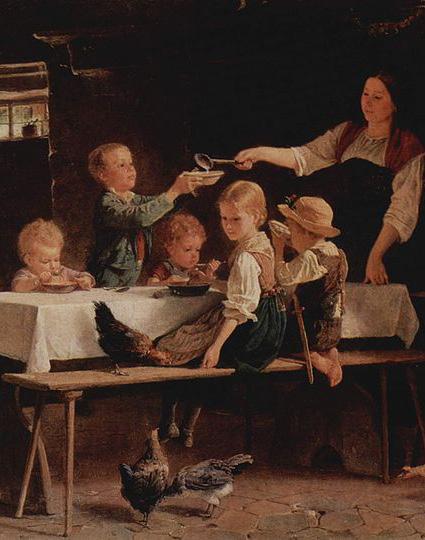

— 15 — Metanoia Magazine
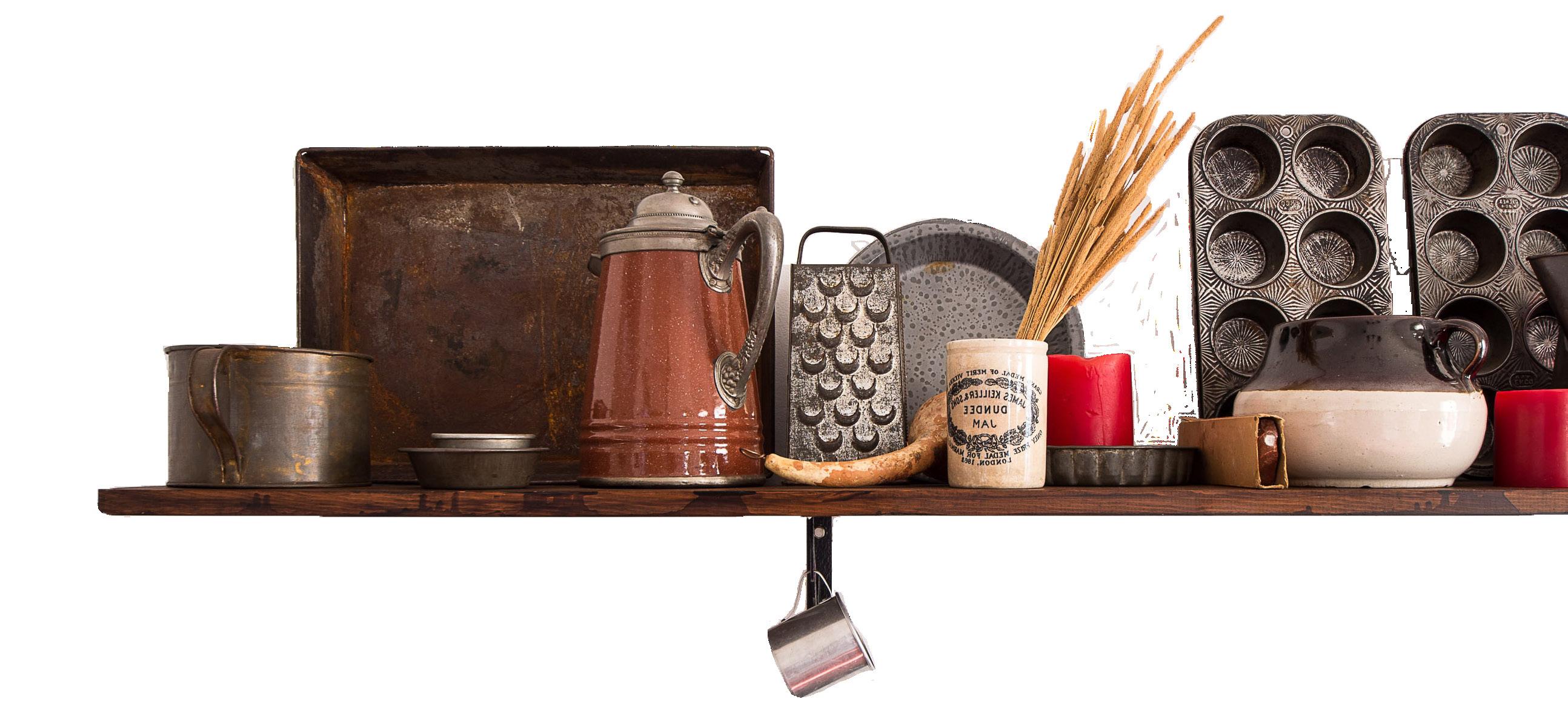
art. The combination of essential elements—protein, carbs, and fats—with spices and herbs fulfills man’s needs and simultaneously appeals to man’s sense of taste. His mind enjoys the complexity of dishes with various notes of flavor, such as the hickory wood smoke in a Christmas ham, or the complementary spices in an authentic green curry. Man learns from experience which combinations complement one another, as well as those that clash, and he adjusts his methods, as any recipe will say, to taste.
Why put all of this effort into cooking? Why place an emphasis on anything more than the survival value of eating? In the short term, or even on those days when a person’s schedule becomes a perfect storm resulting in carry-out meals, eating is more a matter of supplying for man’s vegetative needs. There is no question, however, that man finds a deeper, richer fulfillment in intentionally cooking and enjoying a meal. Think for a moment about your favorite home-cooked meal. Maybe your mom makes it on special occasions, or your dad started experimenting in the kitchen and now the whole family can relish the delicious results. What makes this cooked meal so special? It may provide for your There’s
thing beautiful about a meal cooked especially for you, simply because the cook—your mom, grandma, or whoever it may be—loves you.
My dad and I, whenever we go out to eat, always grade the meal on a scale of “cooked-with-love” to “no-love.” It is obvious when a person puts effort into whatever he or she cooks, and that is why anyone can tell the difference between the burger in the basement food court of a modern art museum and the one Dad grilled in the backyard. Maybe Dad adds a little more seasoning, he just knows how much cheese you like, or he knows whether you like the burger bun toasted or not; regardless, there is something different about his cooking.
Given these principles, it is clear that cooking is essentially human, in that it combines man’s rationality in performing the art with his nutritive needs and sense of taste, all in the context of man’s social nature. Moreover, cooking adds to the human quality of life. There is a sentimentality to cooking that comes from the family and points, ultimately, to God’s great love for man. He could have made human beings to photosynthesize, or even to eat a small selection of plants. Instead, He chose in His Providence to create a plethora of food items, flavors, and ways each ingredient can combine with others. Not only that, but He gave man enjoyment; man can savor what he eats in a way no other animal can, and that is the beauty of cooking.

" — 16 — Surroundings
something beautiful about a meal cooked especially for you."
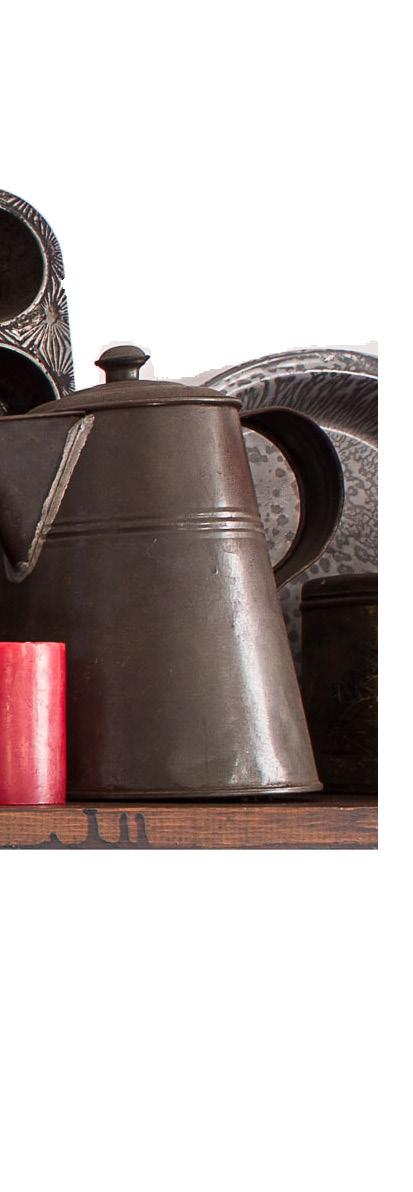

There is a sentimentality to cooking that comes from the family & points, ultimately, to God’s great love for man."
— 17 — Metanoia Magazine
RECIPE FEATURE
"
You will never become a good cook unless you cook ... so get into the kitchen!"
- Professor Mike Brown


— 18 —
Mr. Brown's
Mango Mousse Parfait
1 (3 ounce) package lemon gelatin
1 (3 ounce) package orange gelatin
1 (3 ounce) package peach gelatin
1 cup boiling water
About 25-30 ounces of mango (use some orange juice if using fresh, not canned, mangos)
1 (8 ounce) package cream cheese, cut into 4 pieces
Juice of 1 to 2 limes
Cool Whip
Fruit: mandarin oranges and kiwi work best
Whipped topping
DIRECTIONS
1. In a large bowl, dissolve gelatins in boiling water.
2. In a blender, blend mangos with juice.
3. Pour half into gelatin and stir to mix.
4. Add cream cheese pieces, and blend until smooth.
5. Pour into gelatin and stir to mix.
6. Add lime juice and stir well.
7. Chill until set (probably 3 to 4 hours).
8. When chilled, using blender, blend some Cool Whip with chilled mango mousse.

9. To make a parfait, put a spoonful of mousse on the bottom of something like a wine glass, then layer mandarin oranges on mousse and spray a layer of whipped topping. Continue layering until you fill the cup, then finish by putting some cut kiwis on top.
Mr. Brown's
Caramelized Bacon & Brie Crostini
Thick-sliced bacon
Light brown sugar
Ground pepper
Brie cheese
Sliced almonds
French baguette

DIRECTIONS
1. Line baking sheet with foil.
2. Lay out bacon in single layer, side by side.
3. Spread thin coat of brown sugar on top side of bacon.
4. Sprinkle ground pepper over bacon.
5. Bake in oven at 375 degrees. Be careful not to burn. And halfway through cooking, turn bacon over and think sprinkle some more brown sugar over new side of bacon.
6. Remove from oven, and place on plate to cool.
7. Drain bacon grease.
8. Spread out the almonds. Sprinkle brown sugar over almonds and toast in oven for about 5-8 minutes.
9. Slice brie cheese into slices big enough to cover slice of baguette.
10. Slice baguette and lightly toast in oven.
11. Crumble bacon and put small amount on each slice of baguette. Do the same with the almonds, then top with brie cheese. Cook either in oven or in microwave until cheese is melted.
— 19 —
VERSO L'ALTO
by MEAGHAN PIERCE '25
This August, countless priests, religious, and youth gathered in Portugal for World Youth Day 2023, the continuation of St. John Paul II’s apostolate to Catholic youth. As with many of the participants, this was my first major pilgrimage, and as the week began, I felt suddenly unprepared. “What does it mean to be a pilgrim?” I wondered. “What am I really doing here?” Of course, pilgrimage is different for every person; nevertheless, I have since learned there are certain features essential to every
nation. I prayed with every step I took, because above all, a pilgrim is one who abandons himself to prayer—to the presence of God Who is always traveling with him.


First, a pilgrim intercedes for others. While in Portugal, I prayed every day, whether at churches or at shrines, at the tombs of the shepherd children of Fatima, or at the birthplace of St. Anthony in Lisbon. I participated at the opening Mass, in a grassy park with half a million other Catholics. I also prayed in Adoration before the Eucharist, in a dusty field with oneand-a-half million pilgrims from every
Making time for prayer was only one of the sacrifices I made on my trip. Most importantly, I had to learn to let God guide the pilgrimage, sacrificing my own need for control. So often, my own plans were ruined, but every unexpected delay turned out to be a greater grace. I also endured hunger, thirst, lack of sleep, difficult companions, inescapable delays, and joint pain from walking for miles. I had to forego convenience and comfort, especially on the last leg of my journey. The last night of World Youth Day is traditionally an overnight vigil held outdoors in a field—or, in Portugal, in a vacant industrial lot. It was over 100 degrees and water bottles heated up to the temperature of hot tea within hours. It was dirty, windy, and dry. The million-and-a-half pilgrims looked like a cross between a beach party and a refugee camp. In that instant, it suddenly hit me: this is how many people live all the time, with only what they can carry on their backs. I was struck simultaneously with gratitude for my own blessings and compassion for those who are not similarly blessed. My sacrifices as a pilgrim brought clarity and charity; I learned to trust God and to have compassion on
— 20 — Society
I had to learn to let God guide the pilgrimage, sacrificing my own need for control."

my neighbor, two graces that endured long after my pilgrimage was over.
On the last morning, hours before our flight home, my older brother and I visited one last church in downtown Lisbon, the Basilica da Estrela. We climbed an old spiral stone staircase to the rooftop, while the echoes of German pilgrims attending Mass below competed with the bells in twin stone towers above. We decided to pray Morning Prayer, and there, looking over the city, we read the first antiphon: “When will I come to the end of my pilgrimage and see the face of God?” We could not
help laughing at how perfectly this verse fit our own situation. Still, there was something odd about it. All that week, I had felt closer to God than ever before, so in that moment, I was unable to see how the end of the pilgrimage and the return to ordinary life would better help me “see the face of God.” I have come to realize, however, that the Psalmist is not talking about a pilgrimage to Fatima, but the Christian pilgrimage through life. We are all on this pilgrimage, with a destination far more beautiful even than Fatima, where the saints lie not in marble tombs but stand upright and praise God. This pilgrimage means learning to walk with Christ, in prayer and sacrifice, with the jour ney’s end always in mind— an end that is not a place, but Our Lord Himself.


"
— 21 — Metanoia Magazine
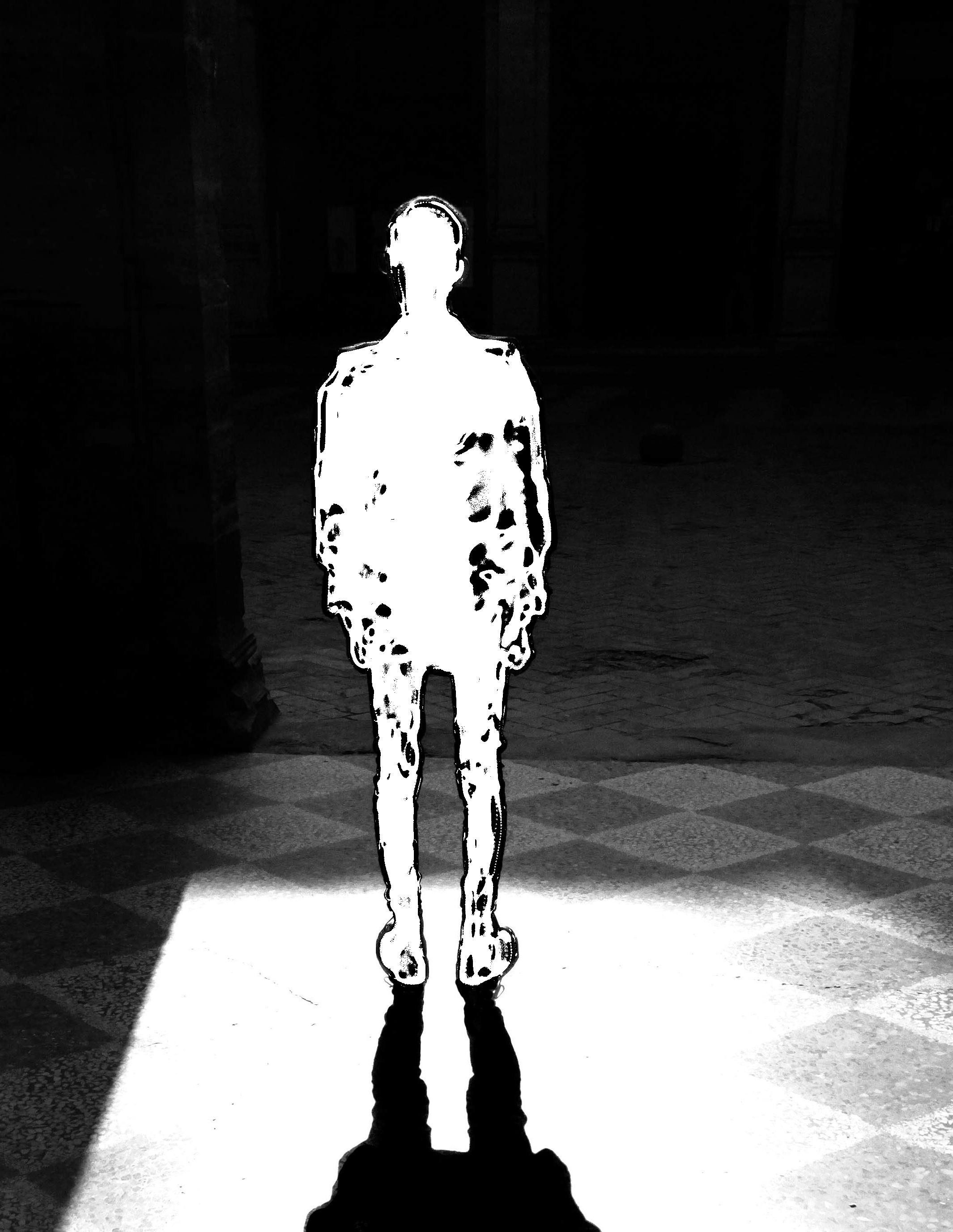
The CRISIS of FATHERHOOD
by AIDAN MOOREHOUSE '24
— 22 — Society

he problems facing the world in general, and America in particular, are too numerous and interconnected for any one phenomenon to completely explain.
In today’s society, however, many fruits have been blighted by one disease: the epidemic of fatherlessness in our nation. In 2021, 40% of all children in the United States were born out of wedlock.1 One out of five children lives in a home without a father, stepfather, or father figure of any sort.2 These numbers are not only alarming in and of themselves but also as indicators of life outcomes, since living in single-parent households dramatically increases the chance of juvenile delinquency, emotional and behavioral problems, and failure to graduate high school.3
Although the stable two-parent household com posed of a mother and father has been the norm for human society throughout history, competing an thropologies in the nineteenth and twentieth centu ries have obscured what should be an obvious truth. Between Marxism’s conception of man as a worker and second-wave feminism’s conception of the father as oppressive and controlling, the vocation of fatherhood has become under valued and discredited. Thus, today’s cul

"One out of five children lives in a home without a father ..."
ture is so damaged that it seems incapable of finding a virtuous mean. How is a young man to mature growing up fatherless in a culture whose mainstream demonizes masculinity and whose counterculture promotes a distorted version of it? British kickboxer-turned-influencer Andrew Tate is the archetypal example of the former, peddling a vision of manhood where a man’s value lies fundamentally in conquest, both material and sexual. When a man such as Tate is considered by many—including many Christians—to be a serious standard-bearer for the reclamation of masculinity, something has gone terribly, terribly wrong.
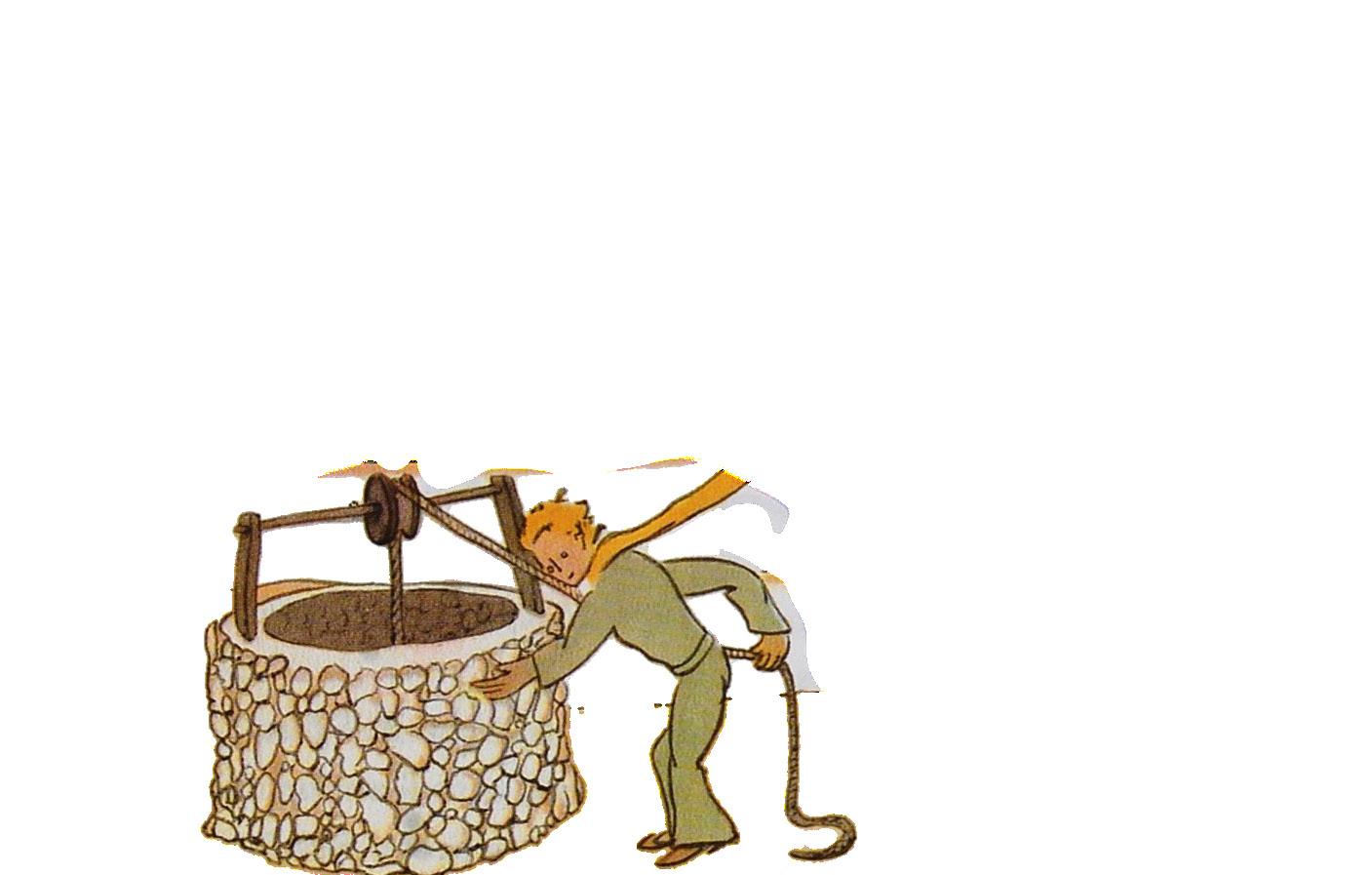
This devaluation of fatherhood has trickled down into many aspects of our popular culture today, even among those who do not hold an explicitly anti-family ideology. Take the example of film: with some notable exceptions, most modern children’s films make heavy use of the trope dubbed by Catholic film critic Steve Greydanus as “Junior This trope depicts the father figure as stern, uncaring, and wrongheaded, and he inevitably admits the error of his ways to the youthAlthough
— 23 —
“Marriage & family are God’s gifts to men to get them to grow up.”

children’s film is the most overt example of this anti-masculine bias in action, this mentality has permeated nearly every aspect of today’s culture in some way. Although it is not always clear whether politics forms culture or vice versa, the two certainly interact, and many of the preconceptions about masculinity which have seeped into today’s culture are enabled by ill-considered political programs. One oft-overlooked contributor to the crisis of fatherlessness is the “Great Society” programs of President Lyndon B. Johnson. Robert Rector, a research fellow at The Heritage Foundation, has written extensively on reforming the Great Society’s welfare programs. Although it is reasonable for any welfare system to provide aid in proportion to the need required, Rector notes, “All means-tested welfare programs are designed so that a family’s benefits are reduced as earnings rise. In practice, this means that, if a
low-income single mother marries an employed father, her welfare benefits will generally be substantially reduced. The mother can maximize welfare by remaining unmarried and keeping the father’s income ‘off the books.’”6 These benefits are not unsubstantial either; it is estimated that up to $12,000 in welfare benefits could be lost if the mother married. The structure of these government welfare programs leads single mothers to “marry” Uncle Sam instead of the father of their children, creating a destructive feedback loop.
Thus, the crisis of fatherlessness is multifaceted, with both political and cultural causes. Regarding the political dimension, at least some denizens of the Imperial City are not oblivious to the crisis. Over the summer, The Heritage Foundation convened a panel of policy experts, researchers, and political leaders to discuss the future of the American family. Although aware that no policy prescription will solve the problem on its own, the panelists did realize that government policies, to the extent that they should be involved in family life at all, should encourage marriage and family life. At the very least, the welfare programs which incentivize fatherless households should be reformed to incentivize family formation. As DeVos Center Research Fellow Delano Squires wryly put it,

— 24 —
“Marriage and family are God’s gifts to men to get them to grow up,” and society suffers when it deprives men of this vital part of their vocation.
A crisis of this magnitude cannot be solved by a “silver bullet,” no matter how useful any one solution might appear. Our participation in political life must reflect a bedrock commitment to traditional marriage and family life, navigating the cultural Scylla of unmanned men on the one hand, and the Charybdis of self-obsessed men on the other. Only when guided by a healthy sense of masculinity—one focused on virtue and self-gift—will men be able to avoid these perils. This may sound like a cliché or moralizing, but perhaps the world could do with an understated, commonsense approach in the face of such insanity. There are few things in life more attractive than the example of a life well-lived, and if we wish to rescue America from the crisis of fatherlessness which plagues it, we men must ultimately—in whatever way our state in life allows—become good fathers ourselves.

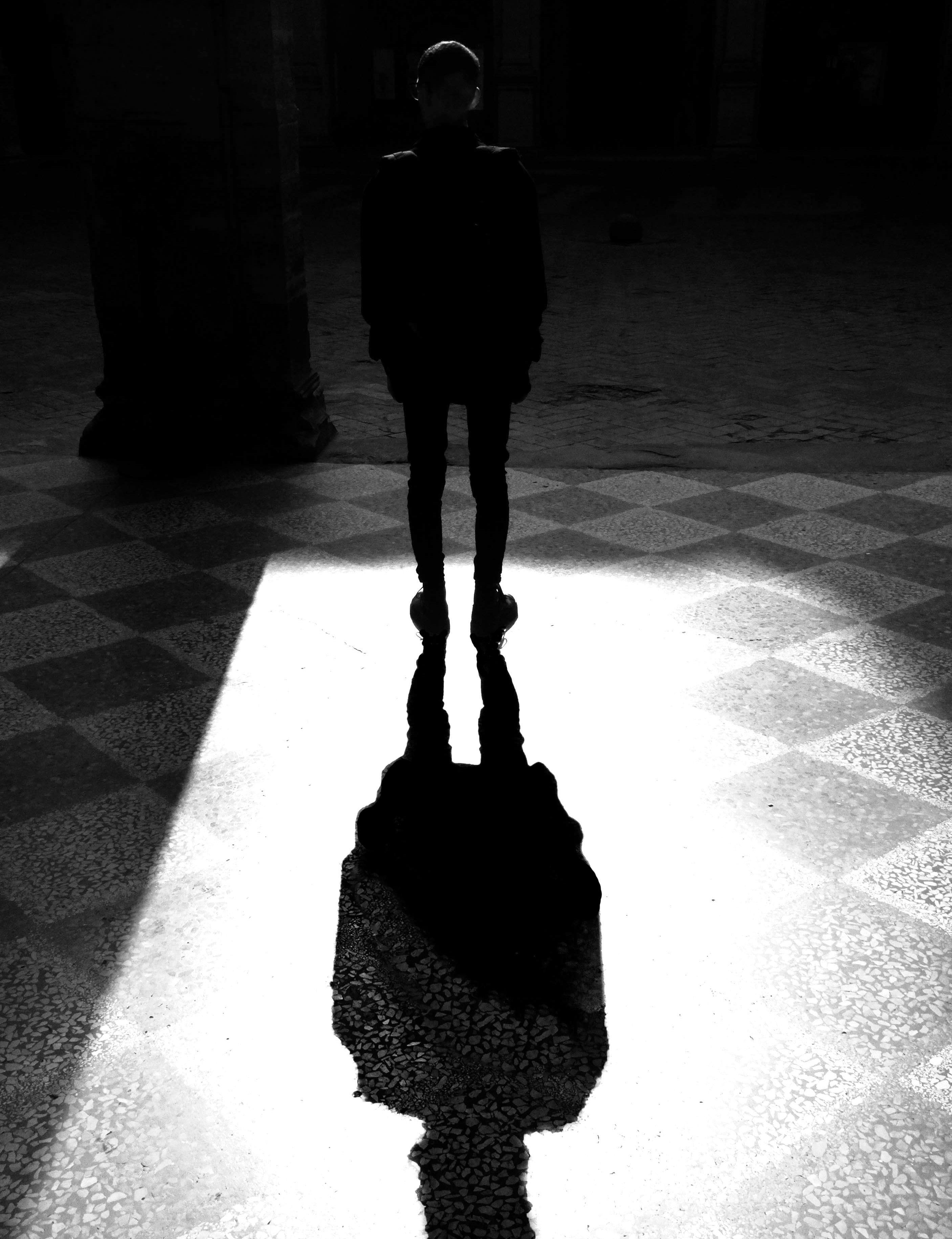


— 25 — Metanoia Magazine

"
The son is rare who measures with his father, and one in a thousand is a better man."
- The Odyssey
— 26 — Society
Endnotes
WHAT IF I MAKE THE WRONG CHOICE?
1. St. Ignatius of Loyola, The Spiritual Exercises, https://www.ccel.org/ccel/ignatius/exercises/exercises.i.html (accessed October 24, 2023).
OPTIMISM: VIRTUE OR VICE?
1. Elizabeth Scott, “What Is Optimism?,” https:// www.verywellmind.com/the-benefits-of-optimism-3144811 (accessed 10/08/2023).
2. This structure is implicit in the statement “I’m neither an optimist nor a pessimist; I’m a realist.” To prove that I’m not making this statement up, see another formulation of it on the blog of Shola Richards: https://sholarichards.com/optimist-vs-realist/ (accessed 9/06/23).
3. Scott, “What Is Optimism?”
4. Omar Itani, “What Exactly Is Optimism?,” https:// www.omaritani.com/blog/optimism (accessed 10/08/23).
THE CRISIS OF FATHERHOOD
1. https://www.cdc.gov/nchs/fastats/unmarried-childbearing.htm.
2. https://www.census.gov/newsroom/press-releases/2022/living-arrangements-of-children.html.
3. https://www.heritage.org/welfare/report/howwelfare-undermines-marriage-and-what-do-aboutit/#_ftn2.
4. https://www.ncregister.com/blog/sdg-s-very-verylittle-movie-glossary.
5. Ibid.
6. https://www.heritage.org/welfare/report/how-welfare-undermines-marriage-and-what-do-about-it.
— 27 — Metanoia Magazine

Vol 3 No 1 MAGAZINE
metanoia






















































